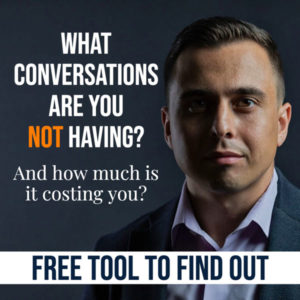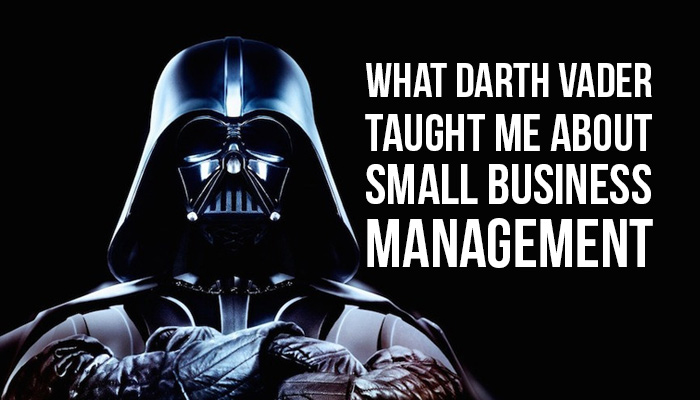Entrepreneurship is a lie- Why owning a business does not work and what to do about it
Most business owners experience entrepreneurship as a hell of personal, mental and physical sacrifice. We get stuck in our businesses; we build profitable jails that we cannot leave because the business might come crashing down without us. Financially we end up being treated like the runt of the litter, getting paid last and barely making ends meet. Look at the life and working conditions of a small business owner, and you will see I speak the truth. Entrepreneurship does not deliver on its promises.
When an entrepreneur loses a business, you lose more. You stand to lose your health, financial stability, your pension fund or even your spouse through a divorce due to the stresses caused by the business.
We sacrifice so much on the altar of entrepreneurship. And why? In the hope of having a one in ten chance of success? What about the other nine business owners? Five of those businesses will fail after five or ten years, and the other four will barely make ends meet. Some statistics even say that all nine will have failed after ten years.
I don’t think entrepreneurship is working. In fact, I think this approach to entrepreneurship is killing entrepreneurship by overworking, overstressing the seed of business potential, the entrepreneur. It is also scaring people off from becoming entrepreneurs.
Entrepreneurship promises to give individuals an opportunity, a vehicle, through which they can uplift themselves and their position in life. It promises customers improved services and products to save the money, time and more. It promises to uplift economies and the communities we serve through job creation and increased economic participation. But NONE of this will come true if we fail at the beginning of the process, the individual, the entrepreneur, the business owner.
Entrepreneurship is killing entrepreneurship.
It is time that we move away from this way of thinking of building businesses because it has TOO many downsides.
Here is a list some of the issues:
#1. Which came first? The chicken or the egg?
We have this hyper-focus on business success. We sacrifice everything in the hope that the business will be a success. Nothing wrong with that. I have been an entrepreneur for more than 18 years; I think I have more ex-businesses than ex-girlfriends. Businesses come and go, it is normal. If this one fails, then I will start another.
Businesses come and go. Let’s focus on that which created it in the first place, the entrepreneur. Why do we treat entrepreneurs as if they are an endless resource and treat them like they can be recycled and regenerated? We DO NOT have an infinite supply of entrepreneurs. Focus on growing and developing the entrepreneur and the businesses will follow.
#2. We are not all single and live alone
The image people hold of entrepreneurs are that they are lone wolves running from one opportunity to the next, living lean by sharing an apartment with two friends and eating noodles for months on end.
Nope, most of us have families, houses, financial responsibilities, and a cat. Kids have a no-return policy; if you have them, they stay around for about 20 years. Neither can I press “pause” on their development and growing needs to reduce the financial stress placed on the business.
My needs, my FULL needs, need to be part and parcel of the planning phase and the business model. I cannot hold this back for a few years.
#3. We are building businesses that might never be profitable
When we start the business, we do the financial modeling and planning around servicing the customer only. There are two customers, the actual customer and then me, the business owner.
Suddenly when my needs come into play (as described in #2.), the business cannot deliver. Suddenly we went from a barely floating ship to a sinking ship.
We are creating financial models not based on all the parties involved and once you do take everyone into account the business might never be profitable. I would rather know that now than later.
#4. We sell hope as a strategy
Most business owners want something better in life. They see owning a business as a way of getting it. But where do their needs fit into the business? It does not, it does not feature on the business model, and neither does it in the financial planning and daily operations of the business. Instead, business owners hope that one day when the business is successful that they will get what they expected the business would give them when they started. Listen, buddy, hope has never been a strategy. Why do you think so many business owners hate what they do everyday, because they never got what they thought the business would give them?
I might just as well fall on my knees and pray to the gods of commerce to send me massive profits and let my cup overflow, enough for family and me (Don’t forget the cat).
Your needs are as real as the needs of the customer, and you need to plan your business for that, or you will never have your needs met. If you fail to plan, you plan to fail. (Insert photo of tired, poor, overworked entrepreneur standing next to resentful family).
#5. Increased risk to business owners and investors
Because we only consider the cost of serving the customers’ needs we can end up making decisions on false data. The reality of what the business SHOULD be delivering is not reflected because it is only serving the customer and not the business owner too, as it should. So instead of killing a business venture because it will never float we then decide to give it another 6 or 12 months only realize it will never float. This approach increases the risk to the business owner and any other investors. It increases your cost of failure.
Reduce financial surprises down the line. Be honest with yourself, with your business and your investors. If they don’t like what you say now, they sure as hell will not like what you say then. So do it now.
#6. Financially killing entrepreneurial continuation
We encourage personal sacrifice and risk in the hope of business glory. But with businesses having such a high failure rate and so much risk involved for the business owner, what do they have left after losing a business. Usually not much.
I might get the cat and visitation rights to the kids because my wife and kids left. They are tired of struggling financially. If you are an entrepreneur, then you will lose a few businesses along the way. But when you risk all on this venture, how will you have resources to move onto the next?
We cannot remove the risk from a business, but we can build a business within a tighter risk parameter to the entrepreneur.
I don’t know about you, but when I read the 6 points above I would never start a business, what I am trying to say is that we are scaring people off. We are again restricting the growth of entrepreneurship.
A new approach to entrepreneurship
I am proposing a new approach to entrepreneurship. It starts with the potential and needs of the entrepreneur. I am already doing this work in groups and with individual business owners and the results are amazing. So this is not a theory, it works.
#1. Let’s develop entrepreneurs
The business is there to provide the resources, money, and people for the entrepreneur to fully develop and express their entrepreneurial talent and potential. You cannot build someone when you do not feed or care for them.
“Divorce” the entrepreneur from the business and let the entrepreneur view the business as a current expression of their entrepreneurial talent. In my experience, it reduces the fear of failure drastically because now failure is not personal anymore, but market driven.
#2. Treat me as if I am a customer
Bring the business owner in as a customer. That way their needs are catered for and planned for just as the customer. It will influence the business model and financial models, if you not now, when? The needs of the entrepreneur are inevitable, bring it into the business from day 1.
#3. Let’s make entrepreneurship a more viable career choice
This approach does not take away business risk, but it reduces individual entrepreneurial risk. You only risk what you are prepared to lose instead of sacrificing and risking everything for a 1 in 10 chance of success. This reduction in individual risk will open entrepreneurship to a broader audience. Yes, it would mean some businesses would never see the light, but business ideas are abundant, entrepreneurs not.
#4. Build more financially viable and investable business
You can make more realistic financial estimations now that you have realistic costing. Serving the needs of the customer and the business owner. We can more easily see if a business will or will not work. It makes for a financially more stable business. A better environment for investors to step.
Conclusion
Am I going to be roasted and ridiculed for publishing this, hell yes. Bring it on. Shout at me. Break me down, insult me and write me off as some nut who is looking for attention. Do that if you want.
But what I am doing is bringing a real problem to light. A problem that I think 99% of business owners face sometime in their business or continuously for 5, 10 or even 15 years. It’s a real problem, and nobody is talking about it.
Growing up I saw my dad destroy himself in his businesses and he has little or nothing to show for it today. I have experienced it myself and seen it in so many other business owners.
It’s an epidemic that needs addressing. That is why I developed a process that makes entrepreneurship work. That makes entrepreneurship deliver on the promises it makes.
If you LIKE suffering in your business, risking everything, then write this article off as rubbish, move on. But if you are like most business owners, stuck, frustrated, busy building a profitable jail while losing any human connection with your family, then contact me. I can help you fix this.
admin
<< Return to Blog Home
Connect with me on social media
Related Posts
If I want to become an entrepreneur, where do I start?
START WITH YOURSELF. [? Included] I know most of the advice you will receive will be around the...
Entrepreneurial demotivation. What it is and how to fix it.
Entrepreneurs suffer a lot of demotivation. I even saw that in 16-year-old entrepreneurs just...
What Darth Vader taught me about small business management
Darth Vader ran a massive empire and this applies to small business management as well. A death...
How can I help you today? See my services.
Leadership
Come and discover your true inner leader through this immersive, customised and realistic event. InsideRisk is the result of three years of research and development. An immersive program about High-Stakes Leadership in Action facing critical thinking, ethics and more.
Innovation
We empower you, your people, to be able to do the work we do when we leave. We are taking innovation out of the boardroom and into the economy. Enterprise level innovation at an SME price. Let us help you innovate your business while building capacity in your business.
Entrepreneurship
Businesses come and go, entrepreneurs remain. The Human Entrepreneur keeps entrepreneurs in the game through a human-centric, entrepreneur first, approach to sustainable entrepreneurial development. For individuals, incubators, development programs, investors and more.
International Speaker
Need a fresh message that motivates, energises and gets people to take action? I work with you to align my work with your message and goals to deliver impact and change. Topics & Events: Leadership, Innovation, Entrepreneurship, Motivation and Team Building.





